

Military groups carry out training exercises in Hawai'i during RIMPAC 2022.
Photo/RIMPAC-Facebook
Rimpac ‘war games’ begin
New Zealand joins world's biggest military exercise in Hawai'i, but Pacific and indigenous advocacy groups demand end to operation.



Inked across lands: How Pacific tattoo art is thriving in Germany

US funding cuts threaten to 'dry up' future of Pacific scientists - expert



Inked across lands: How Pacific tattoo art is thriving in Germany

US funding cuts threaten to 'dry up' future of Pacific scientists - expert
They are coming by air, land and sea. From today (NZ time), more than 25,000 military personnel from almost 30 countries will gather in Hawai’i for the 29th Exercise Rim of the Pacific, or Rimpac.
But the biennial training exercise, which started in 1971, has reignited concerns about the militarisation of the Pacific.
University of Auckland senior lecturer in Pacific studies, Emalani Case, grew up on the island of Hawai’i and has childhood memories of hearing bombs from Pōhakuloa, a nearby military training facility.
Speaking to Te Ao news, Case described the event as “war games” and a lesson in “how to invade”.
“They call it practising defence but they’re really learning how to defend an empire while putting indigenous people at risk.”
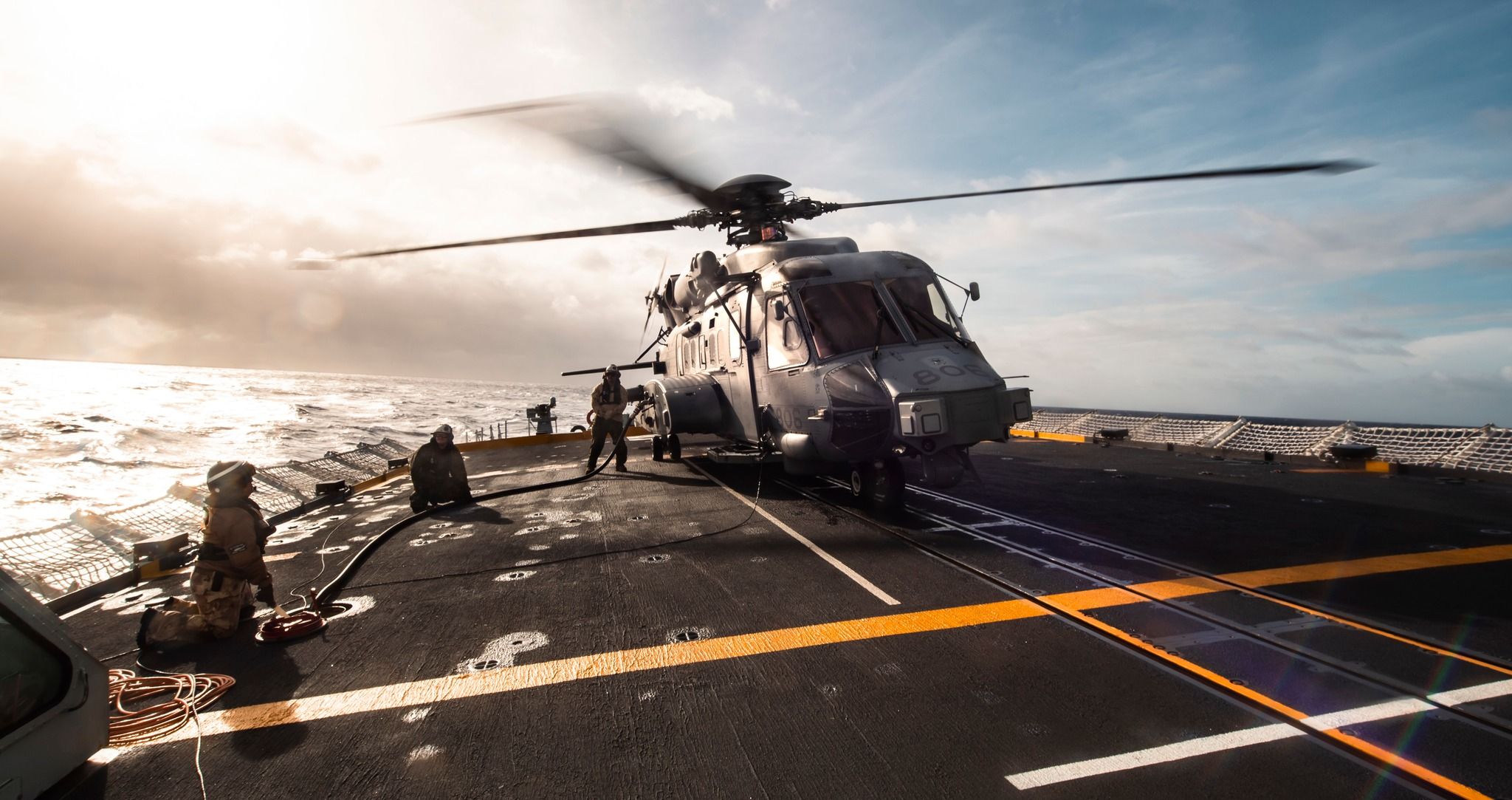
Helicopter landing at sea during the previous event in 2022. Photo/RIMPAC facebook page
What is Rimpac?
Over the next five weeks, 29 countries will take part in the event, described by the US Navy as, “critical to ensuring the safety of sea lanes and security in support of a free and open Indo-Pacific region.
“The exercise, which takes place in the waters surrounding the Hawaiian Islands, is a unique training platform designed to enhance interoperability and strategic maritime partnerships.”
One of the regular activities is SINKEX, where navy groups shoot at decommissioned ships near one of Hawaii’s smaller islands.
Green Party MP Teanau Tuiono said the event has a history of environmental damage, including a petroleum spill in 2021 where thousands of people were drinking contaminated water.
“Also the impact on the environment, on marine mammals, if we're thinking about explosions, the way that they use sonar, that is very damaging for marine mammals as well.”
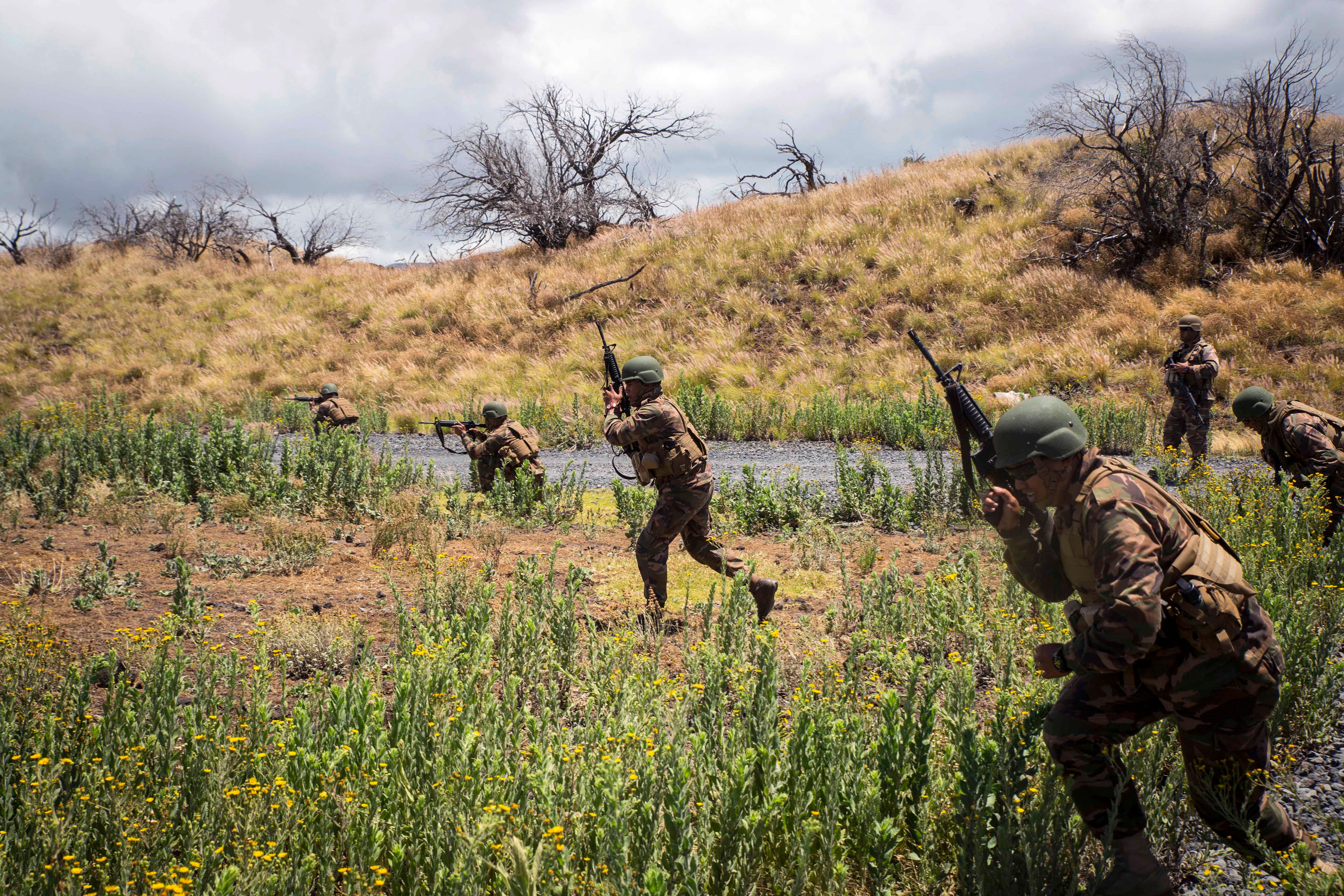
Tonga soldiers taking part in RIMPACT 2018. Photo/Lance Cpl. Adam Montera via defense.gov website
Who is and isn’t invited?
Countries taking part, including New Zealand and Tonga, are seen as allies and friends of the United States, but Tuiono said the inclusion of Israel this time is a major concern.
"We don't have to look over to what's happening in Gaza at the appalling state of the humanitarian crisis there, the role that Israel is playing there. And also it's important to note how the US has been funding the Israeli war machine, in terms of billions and billions of dollars, so this isn't business as usual."
Two people from Peace Action Wellington were arrested at parliament yesterday after staging a ‘die-in’ outside the Defence Force offices.
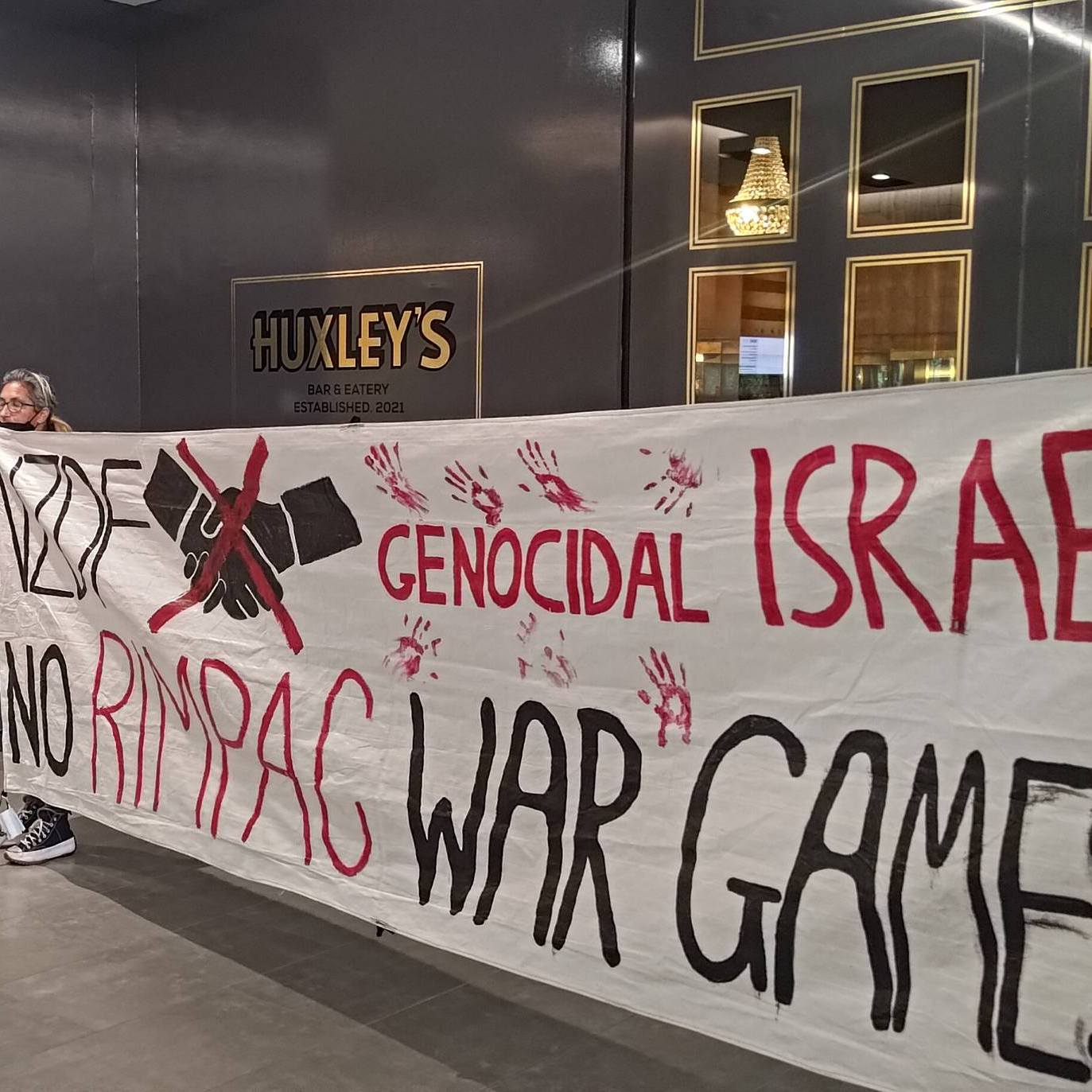
A protest yesterday in Parliament to stop RIMPAC. Photo/Peace Action Wellington facebook page
In a press statement, a spokesperson called RIMPAC a “dangerous parade of military violence”.
“RIMPAC is a giant show of imperial force led by the US that takes place in and around the Hawai’ian islands – land that was illegally stolen from the Kanaka Ma’oli people and which remains occupied by the US.
“Alongside Israel, the RIMPAC guest list also includes Indonesia and France. Both of those countries are currently engaged in brutal military occupations of West Papua and Kanaky.”
What’s New Zealand’s involvement?
From New Zealand, 250 personnel have been deployed on the HMNZS Aotearoa, along with staff officers, divers, air surveillance personnel and an Air Force P-8A Poseidon aircraft.
Commander Joint Forces Rear Admiral Jim Gilmour said the operation, part of a five-month deployment, demonstrates NZDF capability and its commitment to the international rules-based system and security and stability in the region.
“This is a continuation of the NZDF’s work with partners to support maritime security and defence matters while enabling collective training exercises.”
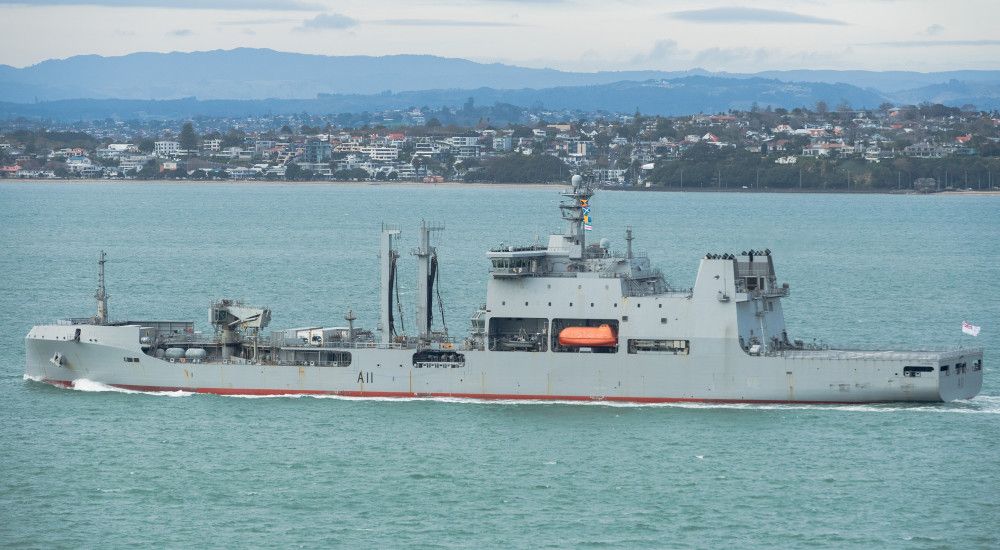
The HMNZS left Devonport Navy Base earlier this month with RIMPAC being the first stop on the five-month journey. Photo/NZDF
Speaking on TVNZ’s Q&A, Defence Minister Judith Collins said RIMPAC is the most important military training operation New Zealand is part of.
"We are really fortunate to be part of this, where we get to— our people get to be working in submarines and ships, we could never afford to do things — it is not our call as to who is invited to that."
Labour’s defence spokesperson Peeni Henare said New Zealand needs to rethink their stance on the event.
“While interoperability is important, it’s wrong for the NZDF to continue RIMPAC operations as if it is business as usual.
“Our values are on the line because of what we have said about Palestine and Israel, so we need to back up the words with actions.”
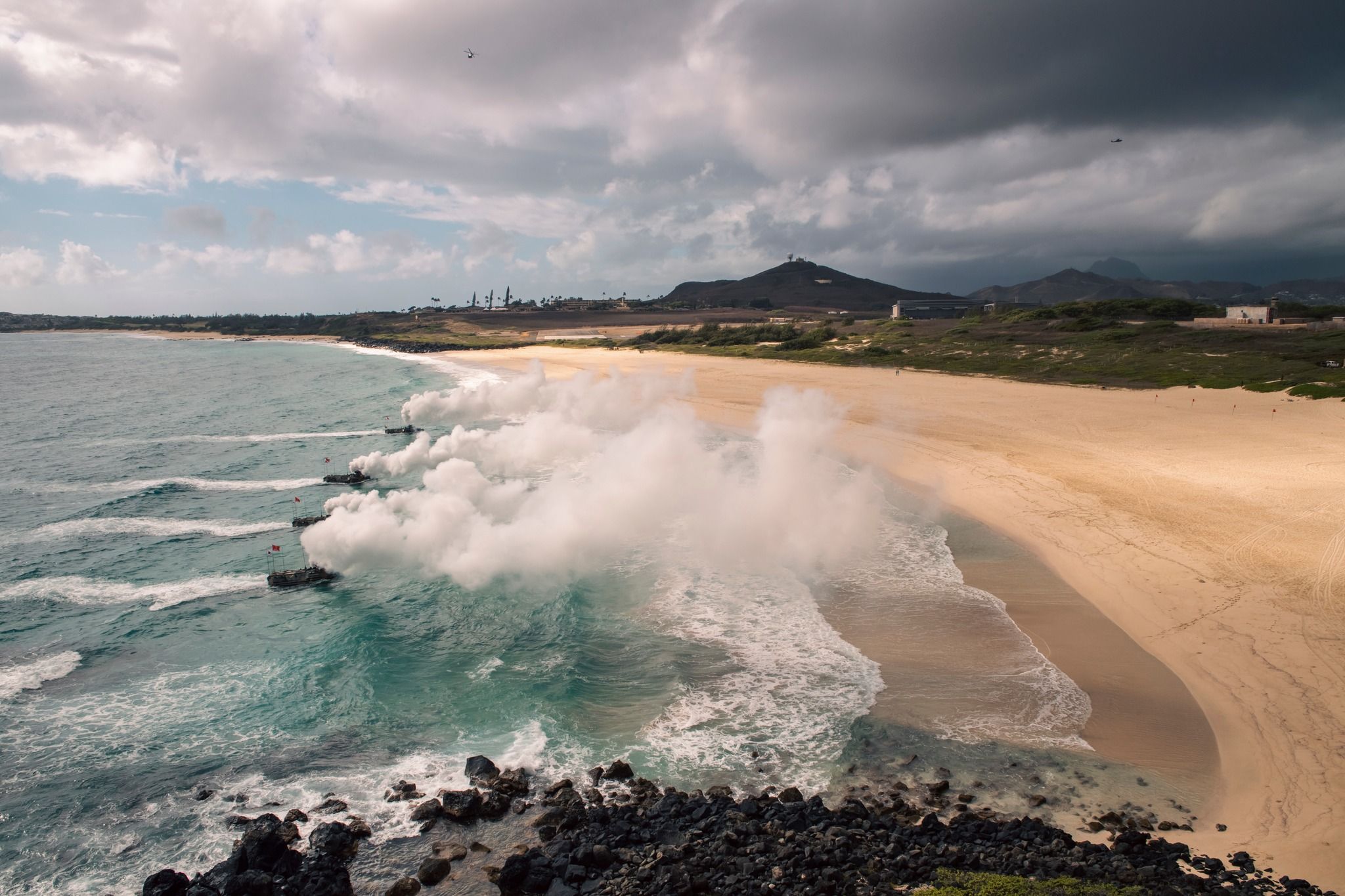
Military groups, including Tonga, take part in an amphibious (land and sea) at RIMPAC 2022. Photo/RIMPAC facebook page
Tuiono wants the event to be scrapped, or for New Zealand to pull out.
“This movement towards things like AUKUS, RIMPAC, is really strategic positioning by the US to counter the influence of China, and so they're drawing us into their side of that struggle.
“The existential threat facing the Pacific isn't China, it's actually climate change.
“In my view, Aotearoa is best aligned with Pacific Island nations, and that requires us to walk that diplomatic tightrope, to be a lot more nuanced, to really think about creating that diplomatic space in particular between us and the US.”
From Festpac to RIMPAC
RIMPAC is taking place just weeks after hosting the world’s largest festival of Pacific arts.
At the Festpac closing ceremony, a banner with the words “Stop RIMPAC” was taken down by security guards.
Tuiono said it’s an about-face going from celebrating the role of indigenous peoples, kanaka māoli and acknowledging Pacific sovereignty and self-determination.
“Then to have this display of U.S. imperialism, this display of U.S. dominance in the Pacific, it's important for us to challenge that, to find a different way forward.”
Protecting Oceania is a collective group of Pacific advocates and organisations representing people from 25 nations including Cook Islands, Fiji and Vanuatu. In a joint statement, they urged countries to pull out of the “war games in our waters” due to “its threat to our sovereignty, the health of our lands and oceans, and the harm it leads to on peoples around the world”.
“We oppose turning Hawaiʻi’s lands and waters into training grounds for imperial and genocidal
regimes that will engage in ocean, ground, and amphibious assaults.
“We stand against the violence RIMPAC will bring to the islands as well as the imperial violence it has and will continue to promote and naturalise around the world.”